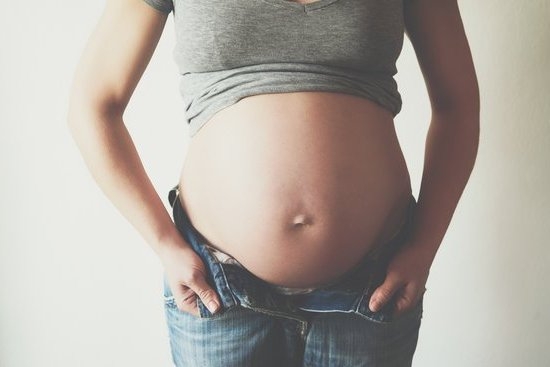How long is the first trimester of pregnancy? The first trimester of pregnancy is a crucial stage in the early months of gestation, marked by significant physical and emotional changes for the expectant mother.
This article delves into the concept of the first trimester and its significance in the stages of pregnancy. From the duration of this period to the development of the fetus and common symptoms experienced, this section provides an overview to help women better understand and navigate through this important phase of pregnancy.
The first trimester, which spans from week 1 to week 12 of pregnancy, is a time of rapid physiological changes as well as emotional adjustments for expectant mothers. During this period, various physical and emotional symptoms may occur, reflecting the body’s preparation for nurturing a growing fetus. Understanding what to expect during this time can help women manage their health and wellbeing more effectively.
In addition to outlining what pregnant women can anticipate, this section aims to address any concerns or questions about how long the first trimester lasts. By providing specific information on its duration, including weeks and months, this article seeks to offer clarity for women navigating their way through early pregnancy. Understanding the timeline of the first trimester is essential for expectant mothers as they track their progress and prepare for subsequent stages in their journey toward motherhood.
What to Expect
During the first trimester of pregnancy, a woman’s body undergoes numerous physical and emotional changes as it adjusts to the presence of a growing fetus. These changes can vary from woman to woman, but there are some common experiences that many pregnant women can expect during this stage.
Physical Changes
The first trimester is often characterized by symptoms such as morning sickness, breast tenderness, frequent urination, and extreme fatigue. Many women also experience an increased sense of smell, food aversions, and heightened emotions due to fluctuating hormone levels. It is not uncommon for women to also experience bloating and mild cramping as the uterus begins to expand to accommodate the growing fetus.
Emotional Changes
In addition to physical symptoms, many pregnant women also experience a range of emotional changes during the first trimester. Hormonal fluctuations can lead to mood swings, increased anxiety, and feelings of uncertainty or overwhelm. It is important for women to seek support from their partners, family members, and healthcare providers during this time and remember that these emotional changes are a normal part of pregnancy.
Overall, the first trimester can be an overwhelming yet exciting time for many expectant mothers as they adjust to the physical and emotional changes that come with early pregnancy. It is important for pregnant women to take care of themselves both physically and emotionally during this crucial stage in order to support a healthy pregnancy and overall wellbeing for both themselves and their developing baby.
Duration
The first trimester of pregnancy is a crucial stage in the journey of motherhood, marking the early development and growth of the fetus. It is a time of significant physical and emotional changes for the expecting mother as her body adjusts to accommodate the new life growing within her. Understanding the duration of the first trimester is important for expectant mothers and their partners as it provides a clear timeline for what to expect during this period.
So, how long is the first trimester of pregnancy? The first trimester typically lasts for about 12-13 weeks, which is equivalent to three months. It begins on the first day of your last menstrual period and lasts until the end of week 12 or beginning of week 13. This timeframe is important to keep in mind when scheduling prenatal appointments and tracking fetal development milestones.
During the first month, important developments take place such as fertilization, implantation, and the formation of basic structures like the neural tube, which will later become your baby’s brain and spinal cord. By month two, vital organs start to form, and facial features begin to take shape.
Throughout month three, your baby’s bones form, and their organs continue to develop. Knowing these milestones can help expecting parents track their baby’s growth and feel more connected to the pregnancy journey.
- Week 1-4: Fertilization occurs and implantation takes place
- Week 5-8: Major organs start forming
- Week 9-13: Fetal growth accelerates with toes and fingers becoming visible
Understanding how long the first trimester lasts can also assist expectant mothers in preparing for common symptoms such as morning sickness, fatigue, mood swings, and other bodily changes that they may experience during this stage. It also helps them mentally brace themselves for what lies ahead in their pregnancy journey.
Fetal Development
During the first trimester of pregnancy, the fetus undergoes incredible growth and development. From the moment of conception to the end of the twelfth week, significant milestones are reached that contribute to the formation of a healthy and fully developed baby. Understanding these stages can provide reassurance and excitement for expectant parents as they witness the transformation of their growing baby.
Conception and Implantation
The gestational period begins with conception when an egg is fertilized by sperm, leading to the formation of a zygote. This single-cell organism undergoes rapid division as it travels down the fallopian tube to the uterus. Within six to twelve days after fertilization, implantation occurs as the embryo attaches itself to the uterine wall, signaling the start of pregnancy. This early period is crucial for fetal development as basic structures begin to form.
Organ Formation and Growth
By around week five, major organs such as the heart, brain, spinal cord, and gastrointestinal system start to develop in what is known as the embryonic stage. The heart begins beating at approximately six weeks, although it may not yet be detectable on an ultrasound.
Limb buds begin to form by week six or seven, followed by finger and toe development in subsequent weeks. At this stage, the fetus appears more like a tiny human and less like a cluster of cells.
Milestones and Viability
Throughout these early weeks of pregnancy, important milestones are reached that signify viability outside of the womb. By week ten, all major organ systems have formed within the fetus, marking the transition from an embryo to a fetus. Additionally, by week twelve – considered as the end of the first trimester – fundamental development is achieved with visible facial features starting to emerge.
Understanding these early stages of fetal development provides an appreciation for how a tiny collection of cells evolves into a recognizable human being. It also emphasizes why proper prenatal care during this critical period is essential for ensuring a healthy pregnancy and childbirth.
Common Symptoms
The first trimester of pregnancy, which lasts approximately 12 weeks, is a crucial period marked by significant changes in a woman’s body as it begins to nurture a new life. Many women eagerly anticipate the first trimester as it heralds the beginning of their journey into motherhood. However, along with the thrill of being pregnant, women can also experience a variety of common symptoms during this time.
One of the most well-known symptoms associated with the first trimester is morning sickness. Despite its name, morning sickness can occur at any time of day and is characterized by nausea and vomiting. It can be quite distressing for some women but usually subsides by the time they reach the second trimester.
Fatigue is another common complaint during the first 12 weeks. The body is expending a great deal of energy to support the growing fetus, leading to feelings of tiredness and exhaustion.
In addition to physical symptoms, many pregnant women also experience mood swings during the first trimester. Hormonal changes within the body can lead to emotional ups and downs, including irritability, anxiety, or tearfulness. These mood swings are completely normal and are often temporary, although it’s important for women to seek support from their healthcare providers if they become overwhelming. Overall, understanding these common symptoms can help expectant mothers navigate through their first trimester more confidently.
| Common Symptom | Description |
|---|---|
| Morning Sickness | Nausea and vomiting that can occur at any time of day |
| Fatigue | Feelings of tiredness and exhaustion due to increased energy expenditure in supporting fetal growth |
| Mood Swings | Hormonal changes may lead to emotional ups and downs, including irritability or anxiety. |
Health and Nutrition
During the first trimester of pregnancy, it is crucial for expectant mothers to prioritize their health and nutrition to support the wellbeing of both themselves and their developing baby. Here are some tips for maintaining a healthy lifestyle and diet during this important stage:
- Stay Hydrated: It is essential for pregnant women to stay hydrated, so aim to drink at least eight to ten glasses of water per day. Dehydration can lead to complications such as constipation and urinary tract infections.
- Focus on Nutrient-Rich Foods: During the first trimester, the fetus undergoes rapid growth and development, requiring an increased intake of nutrients. Incorporate plenty of fruits, vegetables, whole grains, lean proteins, and dairy products into your diet.
- Take Prenatal Vitamins: Even with a healthy diet, it can be challenging to get all the necessary nutrients solely from food. Taking prenatal vitamins, particularly folic acid and iron supplements, can fill in any nutritional gaps.
Maintaining a healthy weight during pregnancy is also important for both the mother’s and baby’s health. The first trimester is not the time to diet or restrict calories; rather, it is about making nutritious choices that provide the necessary energy and nutrients for pregnancy.
In addition to focusing on physical health, it is equally important for expectant mothers to prioritize their emotional wellbeing during the first trimester. Stress management techniques such as meditation, gentle exercise, and seeking support from loved ones can contribute to overall wellness during this critical stage of pregnancy.
Doctor’s Visits
During the first trimester of pregnancy, it is crucial for expectant mothers to attend regular prenatal check-ups and screenings to ensure the health and wellbeing of both the mother and the baby. These appointments typically involve various tests, measurements, and discussions with healthcare providers to monitor the progress of the pregnancy and address any potential concerns.
Prenatal check-ups during the first trimester are essential for confirming the pregnancy, establishing a due date, and assessing the overall health of the mother. These visits also allow healthcare providers to screen for any potential risks or complications that may arise during pregnancy. Additionally, expectant mothers have the opportunity to ask questions, seek guidance on managing symptoms, and receive important information about prenatal care.
The American College of Obstetricians and Gynecologists (ACOG) recommends that women schedule their first prenatal visit with a healthcare provider as soon as they suspect they are pregnant or around 8 weeks into their pregnancy. Subsequent appointments are often scheduled monthly throughout the first trimester.
During these visits, healthcare providers may conduct various tests such as blood work, urine analysis, ultrasound examinations, genetic screenings, and assessments of vital signs to monitor the health of both the mother and the developing fetus.
| First Trimester Prenatal Visits | Frequency |
|---|---|
| Initial Visit | As soon as pregnancy is suspected or around 8 weeks gestation |
| Subsequent Visits | Monthly throughout the first trimester |
Conclusion
In conclusion, the first trimester of pregnancy is a vital and transformative time for both the mother and the developing fetus. This initial stage, which lasts for approximately 12 weeks or three months, is marked by significant physical, emotional, and hormonal changes in the expectant mother’s body as well as crucial fetal development milestones.
Understanding what to expect during this period can help alleviate anxiety and prepare women for the journey ahead, while seeking proper medical care and support is essential for ensuring a healthy pregnancy.
During the first trimester, pregnant women can expect to experience a range of symptoms including morning sickness, fatigue, mood swings, and breast tenderness. These discomforts are all normal aspects of early pregnancy that should be monitored closely but typically subside as the trimester progresses.
Additionally, maintaining a nutritious diet, staying physically active within safe parameters, and attending regular prenatal visits can contribute to a healthy pregnancy outcome. Seeking professional guidance from healthcare providers offers valuable support in navigating any concerns or challenges that may arise during this critical phase.
Overall, the first trimester of pregnancy lays the foundation for a healthy gestation period and sets the stage for what’s to come in the second and third trimesters. Recognizing how long is the first trimester of pregnancy alongside its accompanying changes underscores its significance in maternal health. By prioritizing self-care and seeking medical attention when needed during this journey into motherhood, women are better equipped to ensure their own wellbeing as well as that of their unborn child.
Frequently Asked Questions
Is First Trimester Over After 12 or 13 Weeks?
The first trimester of pregnancy is typically considered to be over after 12 weeks. This is when the risk of miscarriage significantly decreases, and many women start to feel more comfortable sharing their news.
Is Your First Trimester 4 Months Pregnant?
Being 4 months pregnant does not necessarily mean you are in your first trimester. The first trimester usually lasts until the end of the 13th week, so at 4 months you would likely be well into your second trimester.
Which Trimester Is the Most Critical?
The first trimester is often seen as the most critical period of pregnancy. This is because this is when the baby’s major organs and body systems are developing. It’s also when the risk of miscarriage is highest, so it’s important for pregnant individuals to take extra care during these early weeks.

Welcome to my fertility blog. This is a space where I will be sharing my experiences as I navigate through the world of fertility treatments, as well as provide information and resources about fertility and pregnancy.





